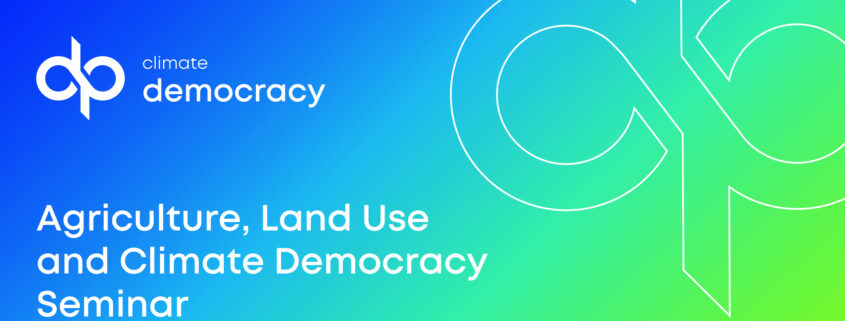Agriculture, Land Use and Climate Democracy Seminar | 14 October | The MAC Belfast
Agriculture, Land Use and Climate Democracy Seminar
- 14 October 2024 | 9am – 5pm
- The MAC Belfast
- FREE | Register at: HERE
The transition to net zero is a generational challenge and transformative opportunity for policy makers and public leaders across Ireland and the UK. Managing the pace and scale of change to meet this transition in a just manner poses unprecedented challenges, made more complex by the headwinds of pandemic, war in Europe, political polarisation, and a generational cost of living crisis.
The purpose of this programme is to contribute to building the policy and political leadership that will be necessary if we are to deliver an orderly, just, inclusive and effective transition. Rather than tackling all aspects of the transition, this first pilot programme offers a deep dive on agriculture/land use and democracy as two inter-related dimensions of the transition that pose distinctive challenges to policy making on the island of Ireland.
Agriculture is the dominant source of Ireland’s greenhouse gas emissions, and the sector now faces new pressure from the EU to go beyond efficiencies to deliver meaningful mitigation and adaptation through nature-based solutions for example, while also producing good quality food, ensuring soil health, and good standards of living for farmers and rural communities.
Farmers across Europe have recently led a powerful backlash against the EU’s Green Deal, and the Nature Restoration law underlining the need for far greater investment in stakeholder engagement and a focus on co-designing economically and socially just transition pathways that more fairly distributes impacts on winners and losers, while also based on the climate science.
Getting agricultural and land use policy aligned to the climate transition is a defining challenge and opportunity for this generation of political and policy leaders on the island of Ireland. Getting it right will significantly de-risk the island’s transition and offer important lessons in leadership of value to the rest of Europe and beyond. Both the democratic legitimacy and policy effectiveness of any transition will be enhanced by including affected communities in the design and implementation of policy. This is to avoid or mitigate the type of anti-climate policy backlash we saw in the gilets jaunes/yellow vest movement in France in 2018, or the current farmer/rural backlash against ecological and climate policies across most European countries.
Speakers including:
- Professor John Sweeney, Maynooth University
- Ian Marshall OBE, Centre for Advanced Sustainable Energy (CASE), Queens University Belfast
- Professor John Barry, Co-Director of the Centre for Sustainability, Equality and Climate Action, Queens University Belfast
- Dr Ciara Brennan, Director, Environmental Justice Network Ireland
- Kiera O’Brien, Chair of the US Environmental Protection Agency National Environmental Youth Advisory Council
- Professor David Rooney, Academic Director, Centre for Advanced Sustainable Energy (CASE), Queens University Belfast



